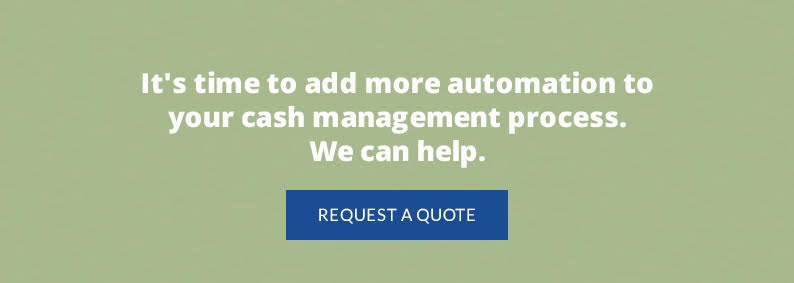In the past few years, there has been plenty of debate about the future of cash. Some people have predicted that cash will quickly become outmoded as new forms of payment, like Apple Pay and the e-wallet, become more popular. Some countries, like Sweden, have even pushed towards a cashless future.
Other experts have been more optimistic about the future of cash. Despite the rise of credit cards and debit payments, cash is still king in many places. In Japan, for example, people tend to prefer cash. In Canada, cash is still the top pick for purchases under $10 too.
In the wake of a global pandemic, though, the discussion around the future of cash has intensified. Some people have advocated for bringing about the futuristic cashless society immediately, while others have noted that cash, in many ways, is still a solid pick. Here’s why you might want to rethink going cashless any time soon.
Cash Might Be Cleaner
Cash often gets a bad rap for not being the cleanest of items. Bills and coins in circulation are handled over and over again as they’re passed from customer to cashier to bank teller and then around again.
For the most part, bills and coins don’t get cleaned or disinfected either. If someone coughs into their hand, then touches a bill, they could be putting germs and bacteria on it. Depending on what the bill is made of, these organisms could live for hours or even days.
That’s why some people have noted a decline in cash transactions during the recent pandemic. Cash’s reputation as a haven of bacteria and germs caused some people to believe it could harbor the COVID-19 virus, helping it to spread. Some businesses even moved to stop accepting cash in order to slow the spread of the virus.
The World Health Organization and other experts put a pin in these fears though. Cash, they showed, might actually be the cleanest form of payment!
The reasoning was that PIN pads and touchscreens, including cell phones, are high-touch areas. Whereas cash is handed over and then tendered, customers repeatedly handle screens and PIN pads. Cashiers may also have to touch these peripherals. Then the process is repeated with the next customer in line, from open to close.
While many business owners have implemented additional sanitation practices, including wiping down PIN pads and touchscreens, as well as deep-clean procedures, these surfaces could harbor the virus much more easily.
There’s also a chance they may not be cleaned properly between customers, or that the virus could live for some time on the surface.
Cash Can Be Cleaned Too
Another recent development has been people cleaning and disinfecting cash. There’s no reason you can’t wipe down coins or spritz some sanitizer on them. Canadian banknotes are also made of plastic polymer, which means you could wash them down easily with a disinfectant wipe.
Paper money may not stand up to this treatment so well.
Given that cash can be cleaned and disinfected, and that it might actually be cleaner and safer than other forms of payment, the WHO and governments around the world have encouraged retailers to continue accepting cash in these trying times.
Cash in the Time of Crisis
One of the reasons the cashless society of the future has yet to emerge is that people put a lot of stock in cash. It’s something they can hold in their hand. A credit card, debit card, or Apple Pay are all intangible, which can make people less confident in them.
With cash, you know exactly how much you have available to you. With a credit card, the idea of how much money you have becomes more abstract.
Some experts have suggested people find comfort in using cash for that reason. Being able to physically touch their money gives them reassurance and confidence.
That’s incredibly important in times of crisis. Something as simple as a power outage could mean losing access to credit card or debit payments. If the Wi-Fi or cell reception is interrupted, you may run into problems with e-wallets and Apple Pay.
If there’s any concern about power outages or service interruptions, then cash feels much safer and secure than newer forms of payment.
Cash Is More Likely to Be Accepted
Many people have been concerned about how rapidly the pandemic has changed the way daily life operates. In these situations, they might worry that “alternate” forms of payment will lose their value. After all, a credit card is just a piece of plastic. If you can’t connect to the network to use it, does it actually have any value at all?
If the credit card company went under, the same situation might arise. If there’s no one backing the card or administering your account, do you actually “have” those funds?
This is another reason people tend to prefer cash in uncertain situations. Since cash is backed by central governments, it’s unlikely it will lose its value. Since everyone agrees cash has value, merchants may even keep accepting it under the most exceptional of circumstances.
In uncertain times, then, it’s easy to see why people would choose to put their funds in cash, instead of investing in BitCoin or other intangible forms of currency.
When situations get rocky, people know they can rely on cash.
Keep Accepting Cash Today—and Beyond
Given the tradition, feelings of security, and even the cleanliness of cash over other forms of payment, it’s unlikely a truly cashless society is on the horizon. If anything, the current pandemic has simply made it clear just how important cash is for your customers and even your business.
If you were thinking about going cashless, whether due to the pandemic or for the future, you may want to give those plans a second thought. Managing the costs of cash more effectively and adding cash automation technology can help you lower overhead, improve security, and still offer cash as a payment option to your customers.



